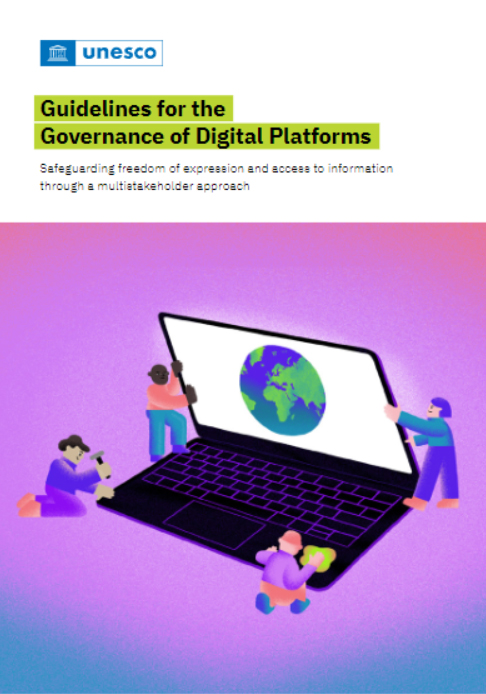UNESCO Releases Global Guidelines for the Governance of Digital Platforms

The UNESCO has released the Guidelines for the Governance of Digital Platforms.
The Guidelines are the result of an extensive and collaborative effort that started in September 2022. It brought together a wide array of stakeholders through three global consultations, including one held during the Internet for Trust conference organized by UNESCO last February 2023.
The consultative process involved the engagement of people from 134 countries, including marginalized and vulnerable groups, generating over 10,000 comments. This made it one of the most extensive consultation projects ever conducted by a UN agency.
What are the Guidelines?
The Guidelines aim to safeguard freedom of expression and access to information online in the context of the development and implementation of digital platform governance processes. Specifically, the Guidelines outline a set of duties, responsibilities, and roles for states, digital platforms, intergovernmental organizations, civil society, media, academia, the technical community, and other stakeholders to enable the environment where freedom of expression and information are at the core of digital platforms’ regulatory processes.
Who will benefit from the guidelines?
The Guidelines will serve as a resource for a range of stakeholders – policymakers in identifying legitimate objectives, human rights principles, and inclusive and participatory processes that could be considered in policymaking; regulatory and other governance bodies dealing with the implementation and evaluation of policies, codes of conducts, or regulation; digital platforms in their policies and practices; and other stakeholders, such as civil society, in their advocacy and accountability efforts. News media can also benefit from these Guidelines in their ongoing efforts to hold powerful actors accountable.
An initiative within the UN Framework to Combat Global Information Threats
The Guidelines align with UNESCO’s commitment to the UN on the development of Our Common Agenda Policy Brief “Global Digital Compact” which sets the stage for a global, multi-stakeholder framework to ensure an open, free, and secure digital future based on the UN Charter, the Universal Declaration of Human Rights, and the 2030 Agenda. They also echo to the UN’s Code of Conduct for information integrity on digital platforms, currently being developed, which seeks to guide Member-States, digital platforms, and other groups in their efforts to make the digital space more inclusive and safer for all.
What’s next?
UNESCO is supporting the creation of a network of networks of regulatory authorities including electoral management bodies and the epistemic community that together will work to monitor and evaluate the efficient implementation of the Guidelines at the global, regional, and national levels.
